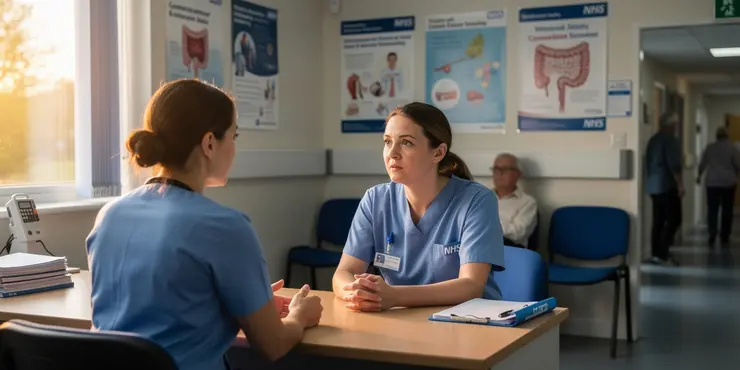
Find Help
More Items From Ergsy search
-
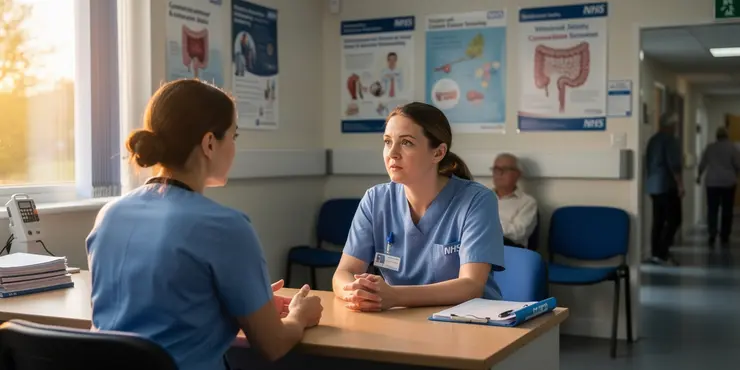
Is aspirin recommended for everyone to prevent colorectal cancer?
Relevance: 100%
-

Can aspirin stop colorectal cancer?
Relevance: 92%
-
Is aspirin more effective for certain age groups in preventing colorectal cancer?
Relevance: 90%
-
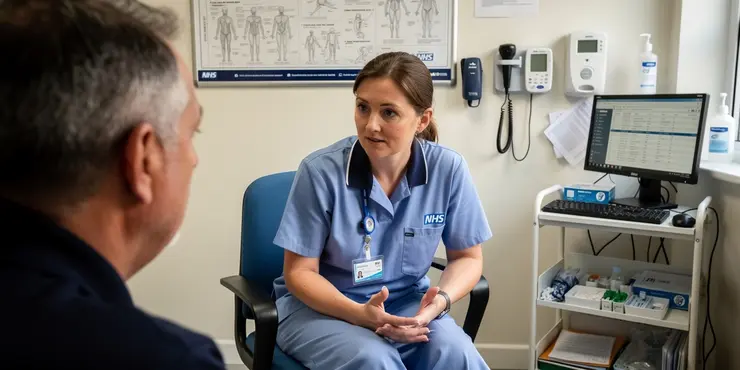
Has aspirin been proven to cure colorectal cancer?
Relevance: 87%
-

Should people with a family history of colorectal cancer take aspirin?
Relevance: 84%
-
Is aspirin effective in preventing other types of cancer?
Relevance: 81%
-

Can aspirin prevent colorectal cancer?
Relevance: 76%
-
Has the FDA approved aspirin for cancer prevention?
Relevance: 75%
-
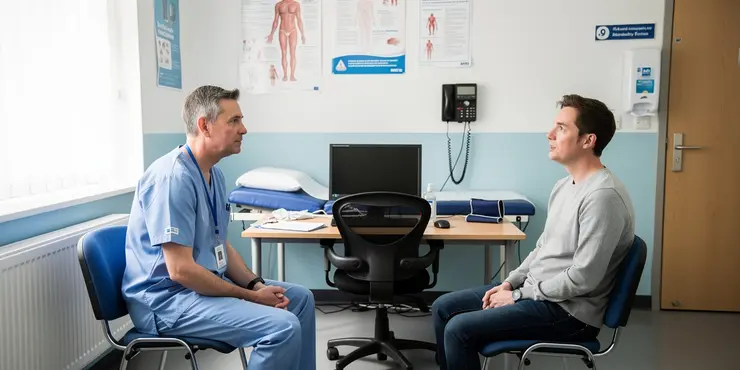
What should I do if I'm considering aspirin for cancer prevention?
Relevance: 75%
-
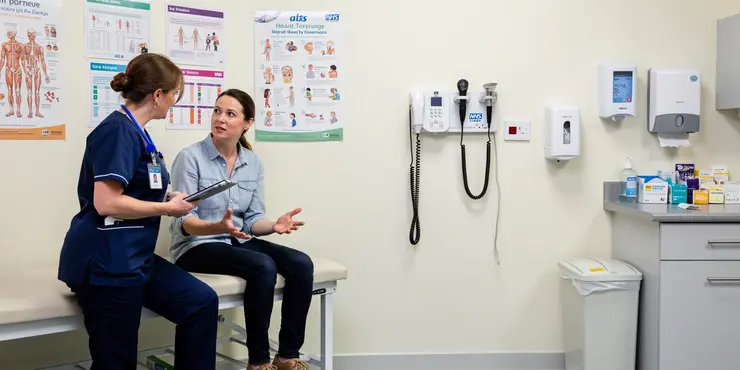
What dosage of aspirin is considered effective for cancer prevention?
Relevance: 73%
-
How long do studies suggest taking aspirin for cancer prevention?
Relevance: 73%
-

What do health organizations say about aspirin and cancer prevention?
Relevance: 71%
-

How does aspirin work to reduce cancer risk?
Relevance: 66%
-
Can lifestyle changes also help prevent colorectal cancer?
Relevance: 63%
-
Are there ongoing studies about aspirin and colorectal cancer?
Relevance: 62%
-

What is colorectal cancer?
Relevance: 60%
-
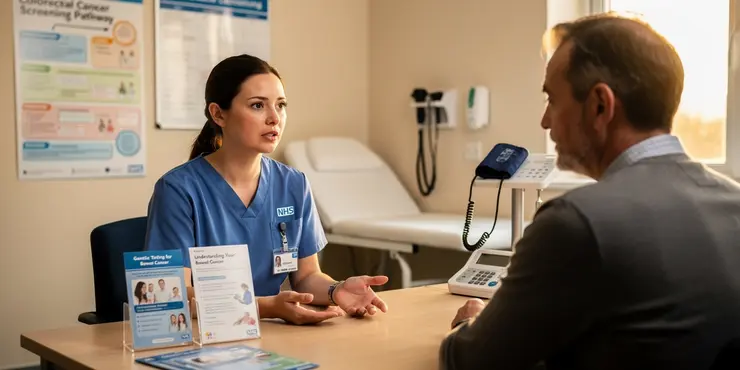
Is genetic testing available for colorectal cancer?
Relevance: 56%
-
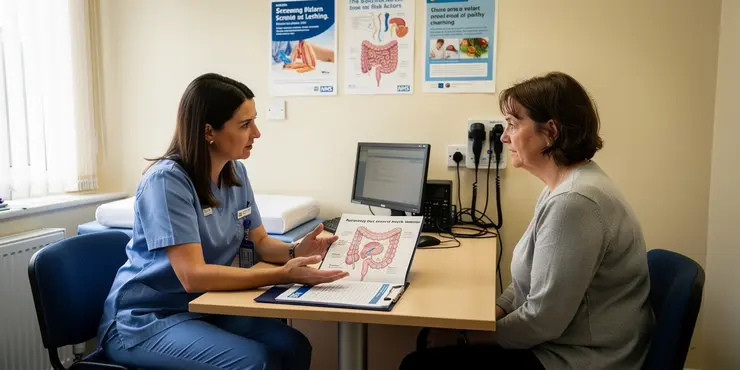
What factors increase my risk of colorectal cancer?
Relevance: 55%
-

What are the recommendations for colorectal cancer screening?
Relevance: 55%
-
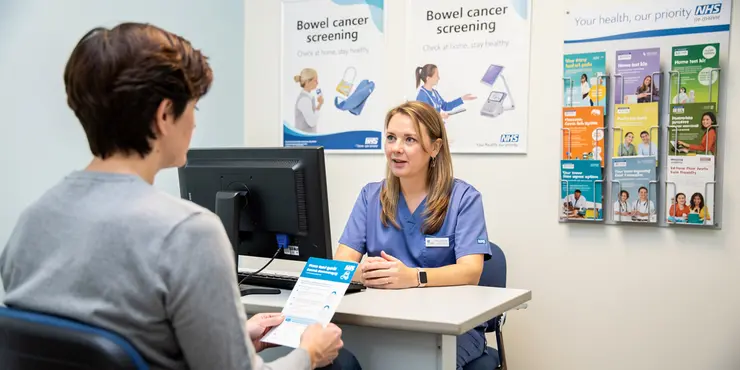
Will insurance cover the cost of home colorectal cancer tests?
Relevance: 54%
-
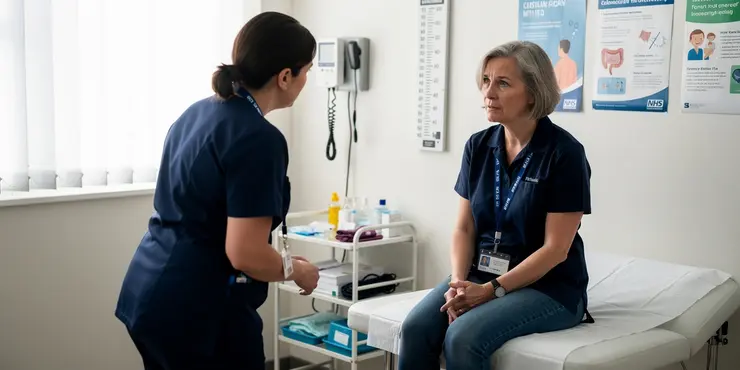
How can I test myself for colorectal cancer?
Relevance: 53%
-
Are there risks associated with home colorectal cancer tests?
Relevance: 52%
-
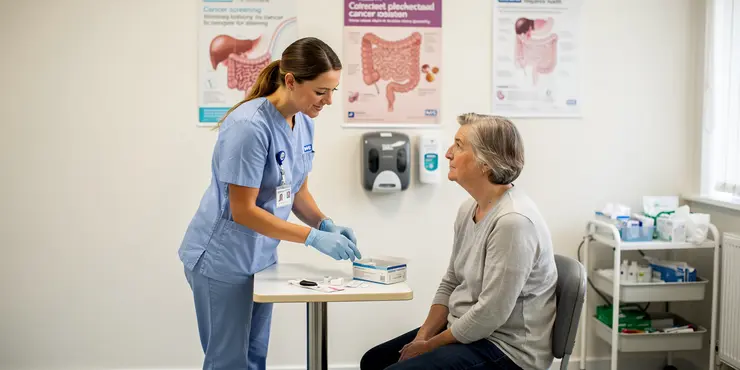
Can home colorectal cancer tests replace a colonoscopy?
Relevance: 51%
-
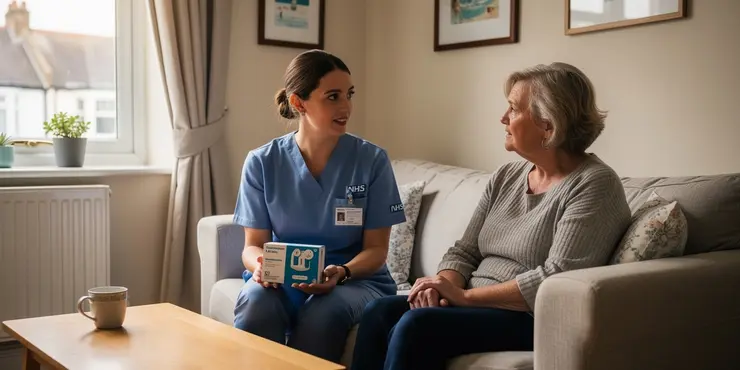
What are the advantages of an at-home colorectal cancer test?
Relevance: 51%
-
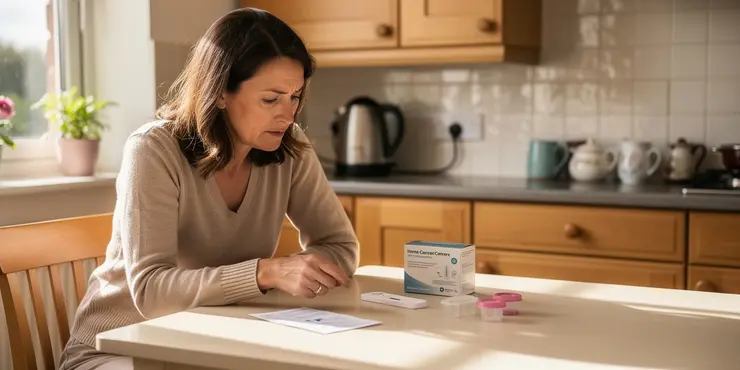
How often should I perform a home colorectal cancer test?
Relevance: 49%
-
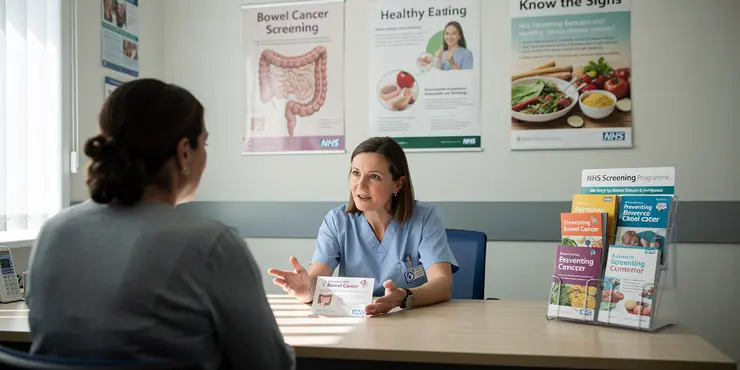
Can bowel cancer be prevented?
Relevance: 42%
-
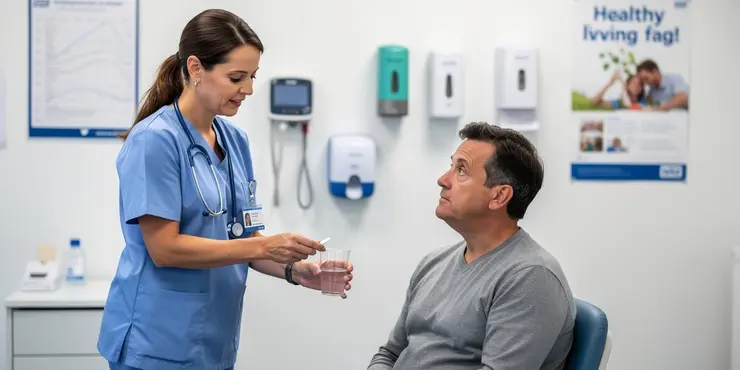
What is Aspirin?
Relevance: 42%
-
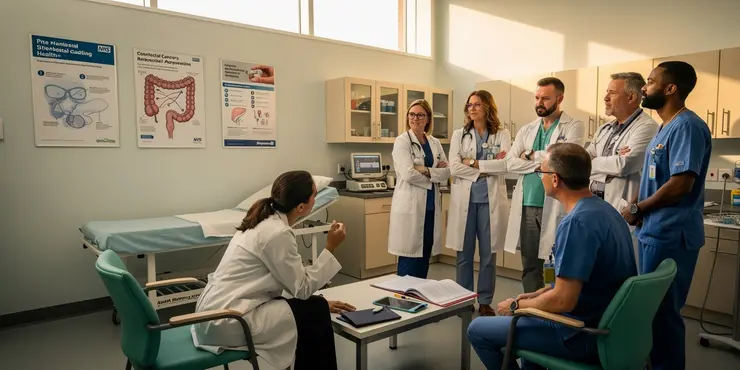
Do all studies agree on aspirin's effectiveness in preventing colorectal cancer?
Relevance: 42%
-

Are Aspirin and Ibuprofen the same?
Relevance: 39%
-
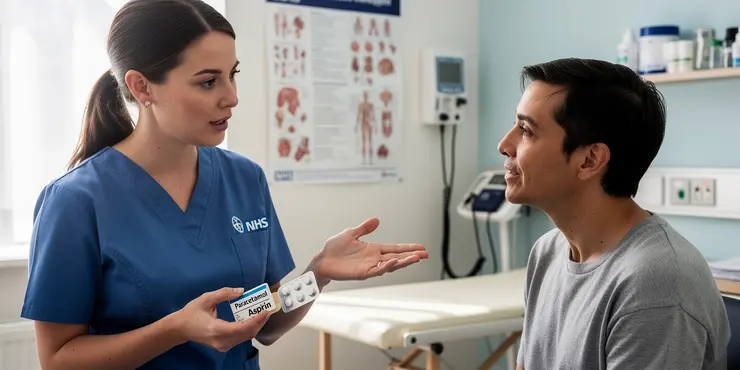
Is Paracetamol the same as Aspirin?
Relevance: 39%
-

Are home tests for colorectal cancer accurate?
Relevance: 38%
-
Can aspirin interact with other medications?
Relevance: 38%
-
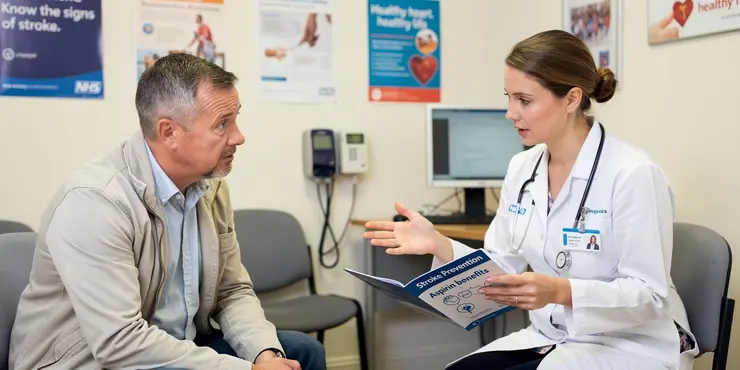
Can aspirin help in reducing the risk of strokes?
Relevance: 38%
-
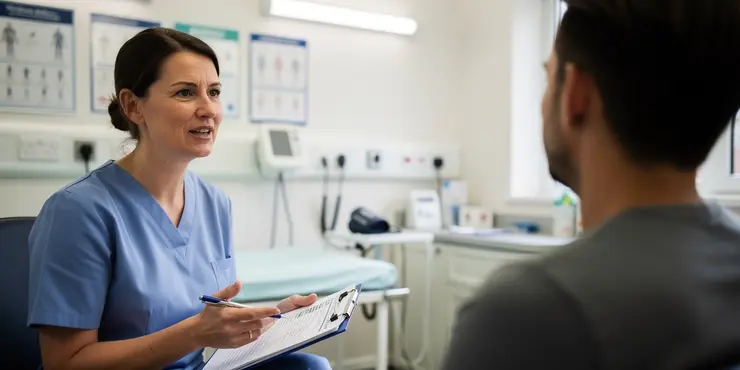
What are the side effects of Aspirin?
Relevance: 37%
-
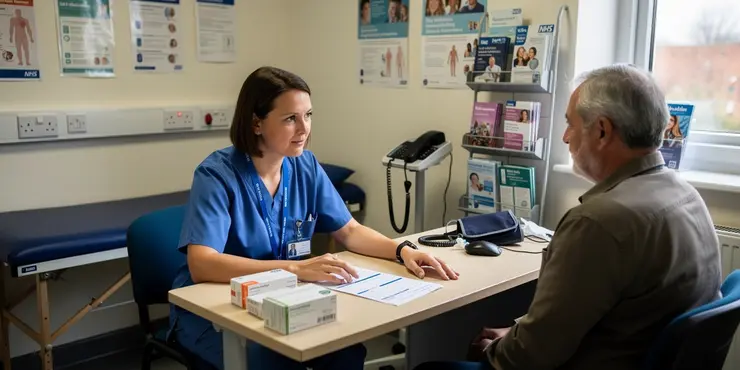
Can I take Aspirin and Ibuprofen together?
Relevance: 35%
-
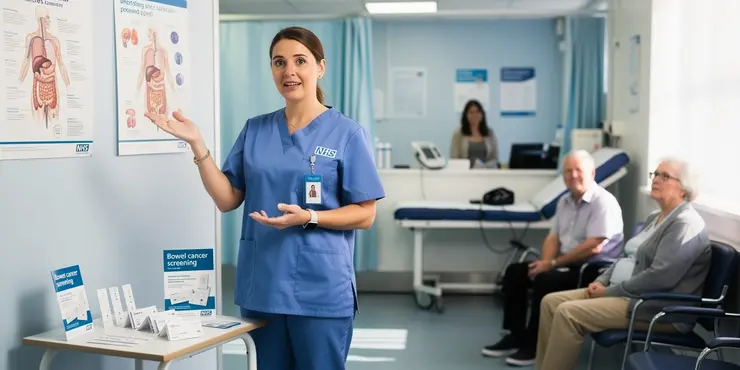
What are the main methods for testing yourself for colorectal cancer?
Relevance: 35%
-
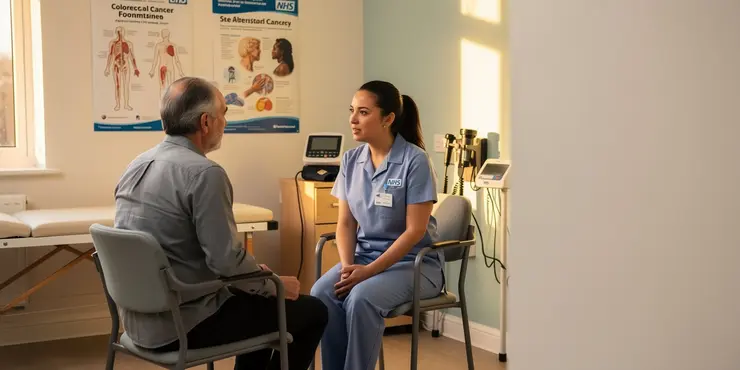
What alternative methods exist to screen for colorectal cancer?
Relevance: 35%
-
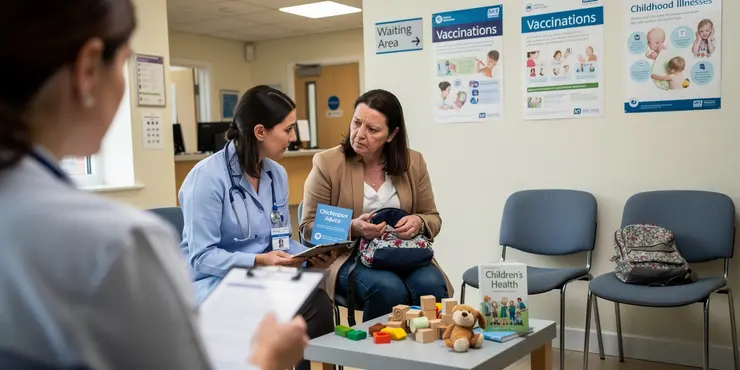
Is it safe to use aspirin to treat chickenpox symptoms?
Relevance: 34%
-

Can lifestyle factors influence the results of a colorectal cancer test?
Relevance: 34%
-

At what age should I start testing myself for colorectal cancer?
Relevance: 34%
Aspirin and Colorectal Cancer Prevention
Aspirin is a common medication known for its pain-relieving properties. It is also known to have anti-inflammatory and blood-thinning effects. In recent years, researchers have explored its potential role in preventing colorectal cancer. Colorectal cancer is a significant health issue, being one of the most common types of cancer in the UK.
The Role of Aspirin in Cancer Prevention
Several studies have suggested that regular aspirin use can reduce the risk of developing colorectal cancer. Aspirin is believed to inhibit enzymes involved in inflammation. Chronic inflammation has been linked to an increased risk of cancer, so reducing inflammation might help lower cancer risk. Additionally, aspirin may help prevent the growth of precancerous polyps in the bowel, which can develop into cancer if left untreated.
Current Recommendations
The National Institute for Health and Care Excellence (NICE) in the UK has examined the evidence for aspirin's use in cancer prevention. While there is evidence supporting its potential benefits, aspirin use is not universally recommended for everyone as a preventive measure against colorectal cancer. The primary reason is that aspirin use carries risks, particularly related to bleeding, especially gastrointestinal bleeding.
Who Should Consider Aspirin?
Current guidelines suggest that aspirin may be considered for certain high-risk groups. Individuals with Lynch syndrome, a genetic condition that significantly increases the risk of colorectal cancer, may benefit from aspirin therapy. However, it is crucial for anyone considering aspirin for cancer prevention to consult with a healthcare provider. The decision should involve weighing the potential benefits against the risks, particularly for those with a history of bleeding disorders or ulcers.
Potential Risks of Aspirin Use
Aspirin can cause side effects such as stomach irritation, ulcers, and increased risk of bleeding. For this reason, healthcare professionals are cautious in recommending aspirin for cancer prevention in people without a significant risk factor. Patients with conditions that predispose them to bleeding or those taking anticoagulant medications should exercise particular caution.
Conclusion
While aspirin has shown promise in reducing the risk of colorectal cancer, it is not universally recommended for everyone in the UK. The decision to use aspirin should be personalized, involving a discussion with a healthcare provider who can consider individual risk factors and medical history. For those at high risk of colorectal cancer, such as individuals with specific genetic predispositions, aspirin may be a part of prevention strategies, but it must be approached with careful consideration of the risks.
Frequently Asked Questions
Is aspirin recommended for everyone to prevent colorectal cancer?
No, aspirin is not recommended for everyone to prevent colorectal cancer. It may be advised for some individuals based on their risk factors and health profile, but this decision should be made in consultation with a healthcare provider.
What factors do doctors consider before recommending aspirin for colorectal cancer prevention?
Doctors consider factors such as a patient's age, personal and family medical history, risk of cardiovascular disease, risk of gastrointestinal bleeding, and overall health profile before recommending aspirin for colorectal cancer prevention.
Can aspirin cause side effects if taken for colorectal cancer prevention?
Yes, aspirin can cause side effects such as gastrointestinal bleeding, stomach ulcers, and an increased risk of bleeding, especially if taken long-term or in higher doses.
Does aspirin reduce the risk of other types of cancer?
There is some evidence that aspirin may reduce the risk of certain other types of cancer, but more research is needed. Its effects are most established regarding colorectal cancer prevention.
How does aspirin help in preventing colorectal cancer?
Aspirin is believed to reduce the risk of colorectal cancer by inhibiting the cyclooxygenase (COX) enzymes, which play a role in inflammation and are involved in the development of cancerous tumors.
Who should definitely avoid taking aspirin for colorectal cancer prevention?
Individuals with a history of gastrointestinal bleeding, a bleeding disorder, allergy to aspirin, or those at high risk of bleeding should avoid taking aspirin for colorectal cancer prevention unless advised otherwise by a healthcare provider.
At what age might aspirin be considered for colorectal cancer prevention?
Aspirin might be considered for colorectal cancer prevention in adults aged 50 to 69 with a high cardiovascular risk, but it depends on individual health assessments and should be discussed with a doctor.
Is lifestyle change a better option for preventing colorectal cancer compared to aspirin?
Lifestyle changes, such as a healthy diet, regular exercise, avoiding smoking, and limiting alcohol intake, are important for reducing the risk of colorectal cancer and may be preferable for many individuals compared to taking aspirin.
How effective is aspirin in reducing the risk of colorectal cancer?
Aspirin has been shown to reduce the risk of developing colorectal cancer, particularly for individuals who take it consistently over a period of years, but the level of risk reduction can vary.
Can taking daily aspirin completely eliminate the risk of colorectal cancer?
No, taking daily aspirin does not completely eliminate the risk of colorectal cancer but may reduce it. It should not replace regular screening and other preventative measures.
Are there alternatives to aspirin for colorectal cancer prevention?
Yes, regular screenings like colonoscopies, maintaining a healthy lifestyle, and addressing other modifiable risk factors are important alternatives to aspirin for colorectal cancer prevention.
Is there a specific dosage of aspirin recommended for colorectal cancer prevention?
The dosage of aspirin for colorectal cancer prevention is typically low-dose, such as 81 mg daily, but the exact dosage should be determined by a healthcare provider based on individual needs.
Does aspirin interact with other medications?
Yes, aspirin can interact with other medications, including blood thinners, certain antidepressants, and anti-inflammatory drugs. It's important to discuss all medications with a doctor before starting aspirin therapy.
How long should one take aspirin to see a preventive effect against colorectal cancer?
The preventive effects of aspirin on colorectal cancer may be seen with long-term use, often over a period of at least 5-10 years, but individual outcomes can vary.
Can aspirin usage for preventing colorectal cancer affect heart health?
Aspirin can have benefits for heart health by reducing the risk of heart attack and stroke in certain individuals, but it also poses risks such as bleeding. The risks and benefits should be weighed by a healthcare provider.
Should someone with a family history of colorectal cancer consider taking aspirin?
Individuals with a family history of colorectal cancer may be advised to consider aspirin under medical guidance, but risks and benefits should be evaluated with their healthcare provider.
Does the US Preventive Services Task Force recommend aspirin for preventing colorectal cancer?
The US Preventive Services Task Force (USPSTF) makes specific recommendations based on age, cardiovascular risk, and other factors. Currently, they suggest some adults aged 50 to 59 may benefit from low-dose aspirin if they are at increased risk for cardiovascular disease.
Can pregnant women take aspirin for colorectal cancer prevention?
Pregnant women should not take aspirin for colorectal cancer prevention as it can pose risks to both the mother and the baby. Any medication use during pregnancy should be discussed with a healthcare provider.
Is there ongoing research into aspirin's role in cancer prevention?
Yes, extensive research is ongoing to better understand aspirin's role and effectiveness in cancer prevention, including large-scale clinical trials and epidemiological studies.
What should individuals do before starting aspirin for cancer prevention?
Individuals should consult their healthcare provider to discuss personal risks, benefits, potential side effects, and alternative preventive measures before starting aspirin for cancer prevention.
Useful Links
This website offers general information and is not a substitute for professional advice.
Always seek guidance from qualified professionals.
If you have any medical concerns or need urgent help, contact a healthcare professional or emergency services immediately.
Some of this content was generated with AI assistance. We’ve done our best to keep it accurate, helpful, and human-friendly.
- Ergsy carfully checks the information in the videos we provide here.
- Videos shown by Youtube after a video has completed, have NOT been reviewed by ERGSY.
- To view, click the arrow in centre of video.
- Most of the videos you find here will have subtitles and/or closed captions available.
- You may need to turn these on, and choose your preferred language.
- Go to the video you'd like to watch.
- If closed captions (CC) are available, settings will be visible on the bottom right of the video player.
- To turn on Captions, click settings .
- To turn off Captions, click settings again.
More Items From Ergsy search
-

Is aspirin recommended for everyone to prevent colorectal cancer?
Relevance: 100%
-

Can aspirin stop colorectal cancer?
Relevance: 92%
-
Is aspirin more effective for certain age groups in preventing colorectal cancer?
Relevance: 90%
-

Has aspirin been proven to cure colorectal cancer?
Relevance: 87%
-

Should people with a family history of colorectal cancer take aspirin?
Relevance: 84%
-
Is aspirin effective in preventing other types of cancer?
Relevance: 81%
-

Can aspirin prevent colorectal cancer?
Relevance: 76%
-
Has the FDA approved aspirin for cancer prevention?
Relevance: 75%
-

What should I do if I'm considering aspirin for cancer prevention?
Relevance: 75%
-

What dosage of aspirin is considered effective for cancer prevention?
Relevance: 73%
-
How long do studies suggest taking aspirin for cancer prevention?
Relevance: 73%
-

What do health organizations say about aspirin and cancer prevention?
Relevance: 71%
-

How does aspirin work to reduce cancer risk?
Relevance: 66%
-
Can lifestyle changes also help prevent colorectal cancer?
Relevance: 63%
-
Are there ongoing studies about aspirin and colorectal cancer?
Relevance: 62%
-

What is colorectal cancer?
Relevance: 60%
-

Is genetic testing available for colorectal cancer?
Relevance: 56%
-

What factors increase my risk of colorectal cancer?
Relevance: 55%
-

What are the recommendations for colorectal cancer screening?
Relevance: 55%
-

Will insurance cover the cost of home colorectal cancer tests?
Relevance: 54%
-

How can I test myself for colorectal cancer?
Relevance: 53%
-
Are there risks associated with home colorectal cancer tests?
Relevance: 52%
-

Can home colorectal cancer tests replace a colonoscopy?
Relevance: 51%
-

What are the advantages of an at-home colorectal cancer test?
Relevance: 51%
-

How often should I perform a home colorectal cancer test?
Relevance: 49%
-

Can bowel cancer be prevented?
Relevance: 42%
-

What is Aspirin?
Relevance: 42%
-

Do all studies agree on aspirin's effectiveness in preventing colorectal cancer?
Relevance: 42%
-

Are Aspirin and Ibuprofen the same?
Relevance: 39%
-

Is Paracetamol the same as Aspirin?
Relevance: 39%
-

Are home tests for colorectal cancer accurate?
Relevance: 38%
-
Can aspirin interact with other medications?
Relevance: 38%
-

Can aspirin help in reducing the risk of strokes?
Relevance: 38%
-

What are the side effects of Aspirin?
Relevance: 37%
-

Can I take Aspirin and Ibuprofen together?
Relevance: 35%
-

What are the main methods for testing yourself for colorectal cancer?
Relevance: 35%
-

What alternative methods exist to screen for colorectal cancer?
Relevance: 35%
-

Is it safe to use aspirin to treat chickenpox symptoms?
Relevance: 34%
-

Can lifestyle factors influence the results of a colorectal cancer test?
Relevance: 34%
-

At what age should I start testing myself for colorectal cancer?
Relevance: 34%


